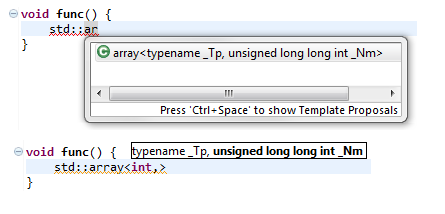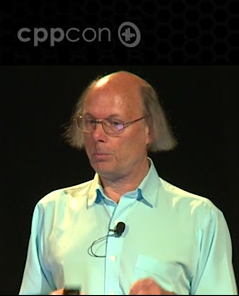N4263: Toward a concept-enabled standard library -- Matt Austern et al.
A new WG21 paper is available. If you are not a committee member, please use the comments section below or the std-proposals forum for public discussion.
Document number: N4263
Date: 2014-11-04
Toward a concept-enabled standard library
by Matt Austern, Gabriel Dos Reis, Eric Niebler, Bjarne Stroustrup, Herb Sutter, Andrew Sutton, Jeffrey Yasskin
Excerpt:
Now that the Concepts Lite TS is (almost) done, the next step is a version of the standard library that uses Concepts. Here are some informal notes on what we might want from such a library and what some of the incremental steps are for getting there.

 News about Cevelop, a C++ IDE for professional developers from the Institute for Software at HSR Hochschule für Technik:
News about Cevelop, a C++ IDE for professional developers from the Institute for Software at HSR Hochschule für Technik: This just in on CppCon.org:
This just in on CppCon.org: Following the recent ISO C++ meeting hosted by Riverbed and the University of Illinois at Urbana-Champaign, the University posted this summary of the event:
Following the recent ISO C++ meeting hosted by Riverbed and the University of Illinois at Urbana-Champaign, the University posted this summary of the event: In case you missed it:
In case you missed it: